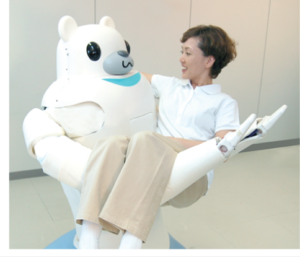“New research shows getting married and staying married may be the best thing you can do for a longer, healthier life.” The New Science of Marriage; Jan. 2014 MacLean’s magazine. This is not the findings of some crazy right wing, fundamentalist zealots but the reporting of our national magazine, MacLean’s. I have always believed in the institution of marriage but the findings reported in the article are astounding never the less.
The Wonder Drug: Marriage
Below are some of the finding that are documented in the MacLean’s article:
- The benefits of a happy marriage are comparable to or even better than chemotherapy for cancer patients.
- It triples a patient’s survival after heart bypass surgery.
- It lowers production of stress hormones and boosts immune responses.
- The article compares marriage to a “wonder drug” because of its huge benefits in virtually every system of the body.
Could you imagine a wonder drug that is more effective than chemotherapy for cancer patients, a super new drug that triples (triples!) a patient’s survival after bypass surgery? Imagine the outcry for this drug, the importance of putting into the hands of all people. Sadly though, we don’t want to take “marriage”. The article does not promote marriage but instead talks about the challenge for us as a culture is to “mimic” the benefits of marriage. Perhaps it is too hard to take. So as a culture we have taken the counterfeit instead.
The Counterfeit Drug: Living Together
The problem is though that the counterfeit drug simply does not work. The article goes onto say this about living together instead of getting married:
- “Surprisingly” cohabitation does not offer the same benefits as marriage.
- Researchers are “astounded” that although living together resembles marriage, it does not offer the same protective benefits as marriage.
- “Surprisingly” living together tend to lead to less stable relationships than marriages.
Never have I seen such a group of surprised and astounded people! What is instructive for me is not just the statistics and the findings, but the “shock and awe” associated with such findings. This is no surprise to those of us who follow God’s teaching in the Bible. The very first thing that God did after creation was create the institution of marriage “… a man will leave his father and mother and be united to his wife, and they will become one flesh” (Genesis 2:24). God made us to become one with our spouse in a bond that is only to be broken by the death of one of the spouses. The fact of the matter is that God, the designer of the world, designed us to be married and stay with our spouse for a lifetime. We are simply not designed to “hook-up” with someone, live together until the inevitable conflicts come, and then move onto the next one.
If we are designed, does that not assume a designer?!
The article quotes research that says that “we are designed” emotionally, physiologically and socially to live in close connection with people who care about us and that if you have a safe, loving relationship, your heart rate goes down, you have fewer stress hormones in your body and your body works more efficiently. It is good to see science catching up with God’s word written thousands of years ago. But it seems that even though the science of the benefits of taking “marriage” is overwhelming, we will not take it under any circumstances. The article continues, “Pro-marriage efforts (among governments) walk an uncomfortable line between promotion and proselytizing.”
At the end of the day, the cultural idol of today that “sex between consenting adults is nobody else’s business” will not be curtailed under any circumstances as it may look like religion. Even if people’s happiness and their lives are at stake, the powers that be in our society will not promote the traditional view of marriage of one man and one woman for one lifetime. Instead they will continue to look for a way to “mimic the effects of marriage”.
You just can’t make this stuff up: Marriage replaced by robot spouses!
In the closing paragraphs of the article we find their solution:
Health care workers, scientists and researchers are looking for creative ways to mimic the effects of marriage. In Japan, which is aging faster than any other country, caretaking robots are being designed that could take the place of nurses—or spouses—to assist the elderly.
Replaced By

 .
.
Recent Comments